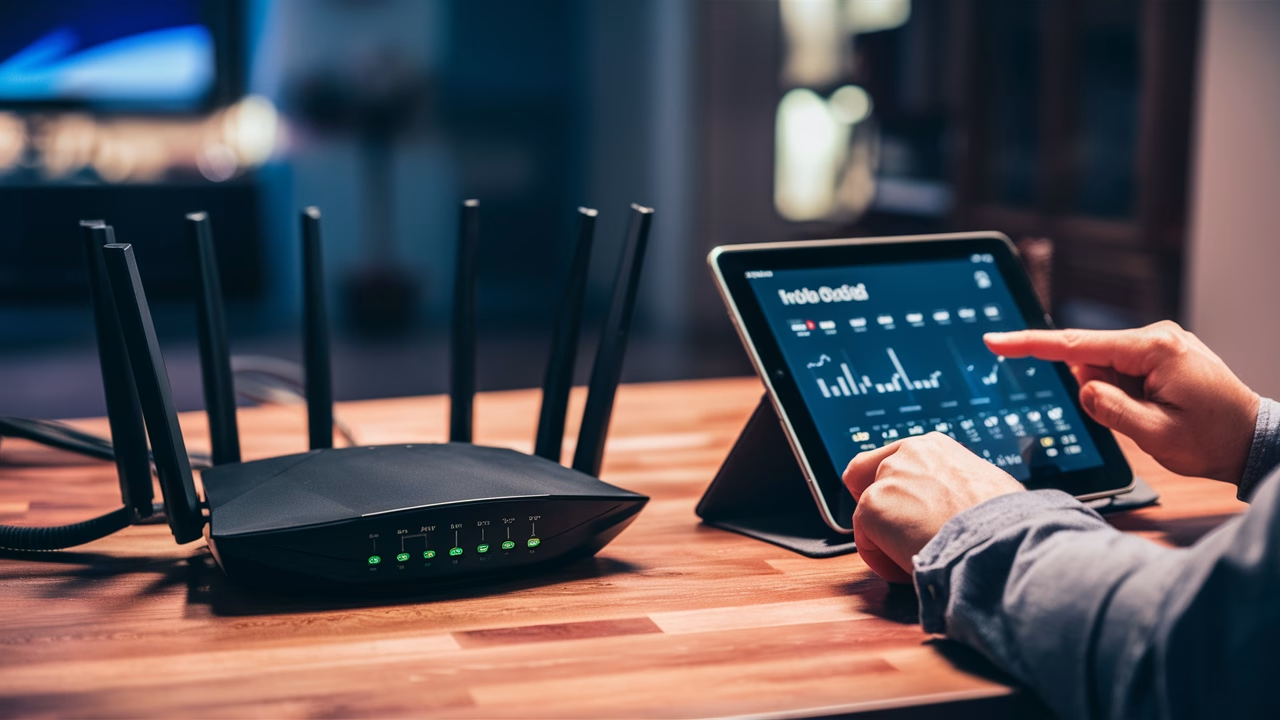How to Rent Out Your WiFi Password to Neighbors and Make Money
Ever wondered if that strong internet connection in your home could do more than stream shows and scroll feeds? What if you could actually earn passive income just by renting out your WiFi password to trustworthy neighbors? The idea might seem unconventional, but with the right approach, WiFi password rental is surprisingly doable — and potentially profitable.
TL;DR
- Yes, you can rent out your WiFi password, but it’s crucial to check your internet provider’s terms and local laws.
- Create a neighbor WiFi sharing contract to legally define terms, expectations, and limits.
- Protect your privacy by using guest networks, bandwidth monitoring tools, and password rotation.
- Calculate earning potential based on internet costs, plan limits, and local demand in your area.
- Maximize earnings by renting to multiple neighbors, offering service tiers, and managing usage smartly.
This is the first—and most important—question you need to answer. The legality of WiFi password rental depends on several key factors: your internet service provider’s (ISP) terms of service, local laws, and the method of connection you use.
Most ISPs state in their Terms of Service that connections are for personal use only and prohibit reselling or distributing your connection to others. That’s their way of saying, “Don’t become a mini-ISP.” However, they often turn a blind eye when usage remains small scale, like sharing with a neighbor or two.
To stay on the safe side when you make money sharing WiFi:
- Review your ISP’s Terms of Service. Look for clauses around ‘resale’, ‘commercial use’, or ‘shared access.’
- Verify with local laws. In some jurisdictions, reselling internet without a commercial license may be considered illegal.
- Set clear boundaries. Use guest networks and access control tools to ensure you remain compliant.
In essence, a little discretion and thorough planning can go a long way. You want to be generous—but not reckless—with your signal.
2. Setting Up a Contract for WiFi Sharing
Think of the neighbor WiFi sharing contract as your digital handshake. It outlines expectations, responsibilities, and legal protections. Without one, you’re setting yourself up for trouble if disputes arise over payment, bandwidth use, or worse—illegal activities conducted through your network.
A strong WiFi sharing contract should include:
- Parties involved: Names, addresses, and contact information.
- Payment terms: Monthly fee, due date, method (cash, app, etc.).
- Speed and bandwidth limits: Specify Mbps or GB caps.
- Security responsibilities: Who updates passwords, who monitors usage.
- Privacy clause: How data is handled if applicable.
- Termination clause: How and when either party can cancel.
For informal setups, even a signed and dated one-page agreement will do. If you want extra peace of mind when you rent out your WiFi password, consult a legal advisor. You’re not just setting rules—you’re building trust and setting expectations.
3. Ensuring Security and Privacy
This is non-negotiable. Once another device taps into your network, you’re potentially vulnerable if you haven’t put safeguards in place. But with a few smart steps, you can share confidently without sacrificing safety.
Essential Security Steps for WiFi Password Rental
- Set Up a Guest Network: This creates a digital wall between your primary devices and shared users.
- Change Passwords Regularly: Rotate your guest password monthly to avoid unauthorized access.
- Enable Network Monitoring: Use apps or router tools to track the number of connected devices, usage data, and download history.
- Block Certain Content: Use parental controls or filters to ensure illegal downloads don’t happen under your IP.
- Limit Access Hours: Some routers let you restrict access by time of day—great for managing peak hours or problem users.
Here’s what often happens in real-world scenarios: you start sharing with a trusted neighbor, and things go smoothly at first. But over time, others get wind of the deal, and suddenly devices you don’t recognize pop up. Monitoring and restrictions help you catch it early and take action before it affects your speed or security when you make money sharing WiFi.
4. Calculating Potential Earnings
So how much can you really make money sharing WiFi? Let’s break it down with a sample calculation:
| Plan Type | Monthly Fee | Download Speed | Users Allowed | Potential Revenue |
|---|---|---|---|---|
| Basic WiFi | $40/month | 100 Mbps | 2 | $20–$50/month |
| Mid-range | $70/month | 300 Mbps | 3–4 | $60–$120/month |
| High-speed | $100/month | 1 Gbps | 5+ | $100–$200/month |
Keep in mind: This doesn’t factor in router upgrades, data overage charges, or extra electricity costs. But even with conservative estimates, you could offset your entire home internet cost—or turn a tidy profit on the side when you rent out your WiFi password.
5. Tips for Maximizing Your WiFi Rental Revenue
If you’re serious about turning your connection into cash, these are the strategies savvy sharers use to scale their setup:
- Offer Tiered Packages: Charge more for higher speed caps or unlimited data.
- Bundle Services: Add perks like basic tech support, parental controls setup, or backups for home workers.
- Market Smartly: A quick neighborhood message board post or word-of-mouth is all you need to find takers.
- Upgrade Your Router: Efficient sharing requires reliable, dual-band or mesh-capable gear.
- Monitor and Adjust: Keep tabs on usage patterns and user satisfaction, then tweak accordingly to maximize your WiFi password rental income.
Cost Guide: What to Expect
| Internet Level | Estimated Monthly Cost | Sharing Potential |
|---|---|---|
| Basic (100 Mbps) | $30–$50 | 1–2 users |
| Average Home Plan (300 Mbps) | $60–$80 | 3–4 users |
| Premium Plan (1 Gbps) | $90–$120+ | 5+ users |
Final Thoughts
With the modern world so deeply wired to the internet, monetizing your home WiFi has become a unique and viable income opportunity. Whether you’re a homeowner with surplus bandwidth or a digital nomad with a flexible plan, WiFi password rental offers a low-effort way to turn monthly expenses into a revenue stream.
The key is protecting your connection, setting clear expectations with signed agreements, and optimizing your setup from both a technical and financial standpoint. Like any side hustle, results vary—but the beauty is, this one works quietly in the background while you go about your day earning passive income.
Frequently Asked Questions
How much should I charge to rent my WiFi?
It depends on your speed and area demand. A good starting rate is $10–$30/month per neighbor.
Can renting my WiFi hurt my connection?
It can if not managed properly. Use a router with QoS settings and user limits to optimize performance.
Is it risky to share my internet with a neighbor?
Only if done carelessly. Use a guest network and regular password changes to maintain privacy and control.
Can I get in trouble with my ISP?
Potentially, if you violate the terms of service. Always check your provider’s policies before renting out access.
What if someone misuses my internet connection?
You could be held accountable. Monitor usage and consider adding accountability clauses in your agreement.
What’s the best way to find neighbors to rent from me?
Start small—use local community boards, messaging apps, or word-of-mouth to reach nearby apartment dwellers.
Do I need a special router?
While not mandatory, investing in a dual-band or mesh-support router helps divide and manage multiple connections better.



